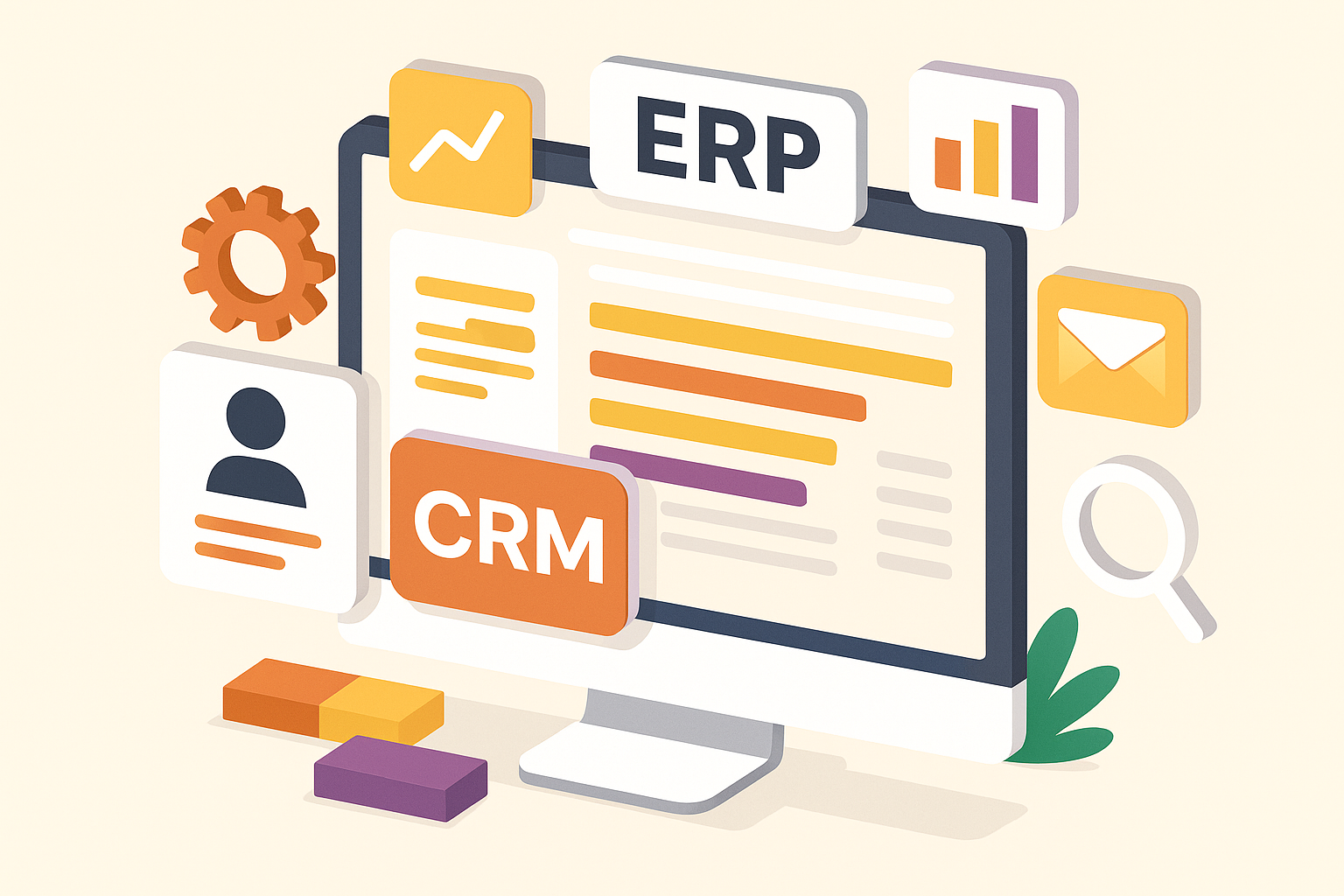1. What is a CRM?
A CRM (Customer Relationship Management) is a tool for managing customer relationships. It centralizes all interactions, data, and history related to your leads and clients, making it easier to track them and personalize your sales actions.
2. Benefits for Your Business
Optimized tracking of sales opportunities
Improved customer relationships thanks to a better understanding of their needs
Clear visibility of the sales pipeline
Time savings through automation of repetitive tasks
3. How to Choose the Right CRM?
Choosing a CRM depends on several factors: your goals, company size, and resources. The needs of a small business differ from those of a large enterprise. Be sure to evaluate:
The number of users
The complexity of your sales cycle
The necessary integrations (ERP, emailing, support…)
4. Integration with Your Existing Tools
An effective CRM must integrate with your ERP, mailing tools (Mailchimp, Brevo…), your support channels, and your sales platforms. Thanks to APIs and connectors, data exchange becomes seamless and automated.
5. Open Source or Proprietary CRM?
Open source (e.g., Odoo, SuiteCRM): great flexibility, scalability, and customization, with lower costs.
Proprietary (e.g., Salesforce, HubSpot): user-friendly interface, built-in support, but often more expensive.
6. Real Use Case Examples
A B2B firm tracks leads based on their maturity level.
An e-commerce store re-engages inactive customers through automated scenarios.
A service company centralizes all contacts in a shared tool between sales and support teams.
7. Keys to a Successful CRM Project
Define clear goals before any technical decisions
Support your teams from the start to encourage adoption
Measure performance and adjust continuously to maximize benefits
Conclusion
Implementing a CRM means structuring your company’s growth for the long term.
SandSkills supports you in the selection, deployment, and customization of your CRM solution to make it a true performance driver.




